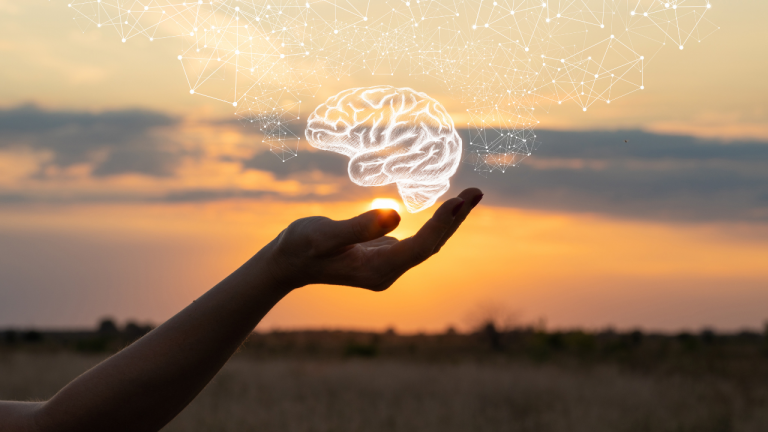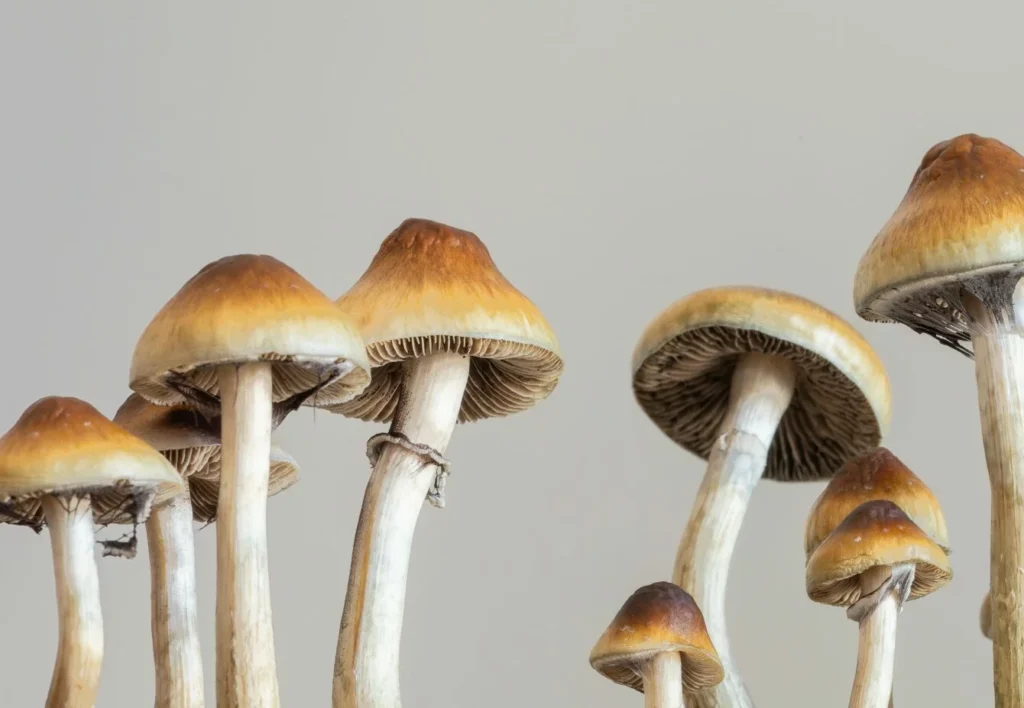
Research suggests that psilocybin, the active compound in “magic mushrooms,” helps alleviate depression through several mechanisms, leading to a sort of “reset” in the brain. Here’s a breakdown of the key theories:
1. Increased Brain Connectivity (and Subsequent Resetting):
- Default Mode Network (DMN) Disruption: The DMN is a network of brain regions active when you’re not focused on the outside world — when you’re mind-wandering, thinking about yourself, ruminating on the past, or worrying about the future. In depressed individuals, the DMN is often overactive and rigid, leading to negative self-focused thought patterns and a sense of being trapped.
- Increased Connectivity Between Networks: Psilocybin disrupts the normal activity of the DMN. However, more importantly, it increases communication between brain regions that don’t normally talk to each other. This allows for new perspectives and associations. Think of it like temporarily scrambling the radio signals in your brain so that new stations can come in more clearly.
- “Brain Entropy” Increase: Some researchers describe psilocybin as increasing “brain entropy.” Entropy, in this context, refers to the amount of randomness or unpredictability in brain activity. A more flexible, less predictable brain state might be more open to change and less stuck in rigid thought patterns.
- Post-Trip Integration: This increased connectivity and flexibility appear to allow people to reframe their experiences and negative thought patterns. With proper therapy and integration, these new perspectives and connections become more permanent, helping to break the cycle of depression.
2. Serotonin System Activation:

- Serotonin 2A Receptor Agonist: Psilocybin primarily works by binding to serotonin 2A receptors (5-HT2AR) in the brain. These receptors are found in high concentrations in brain regions involved in mood, cognition, and perception.
- Modulation, Not Just Boosting: It’s not just about boosting serotonin levels like SSRI antidepressants. Psilocybin seems to modulate serotonin activity in a way that promotes plasticity and allows for more flexible responses.
3. Neuroplasticity and Neurogenesis (Potential):
- Brain-Derived Neurotrophic Factor (BDNF): Some research suggests that psilocybin, and psychedelic experiences in general, may increase levels of BDNF, a protein crucial for brain health, neuroplasticity (the brain’s ability to reorganize itself), and neurogenesis (the growth of new brain cells).
- New Neural Pathways: Increased neuroplasticity means the brain is more adaptable and capable of forming new connections and pathways. This can help individuals break free from ingrained negative thought patterns and develop healthier coping mechanisms.
- Animal Studies: Some studies suggest that psilocybin promotes neurogenesis, especially in the hippocampus, a brain region important for memory and mood regulation. However, more research is needed in humans to confirm this.
4. Psychological Effects and “Ego Dissolution”:

- Ego Dissolution/Self-Transcendence: Many people report experiencing a sense of “ego dissolution” or self-transcendence during a psilocybin trip. This can involve feeling a sense of unity with the world, losing the boundaries between self and other, and experiencing a profound shift in perspective.
- Reduced Fear and Anxiety: Ego dissolution might temporarily reduce fear and anxiety associated with the self, allowing individuals to confront difficult emotions and experiences with greater openness and acceptance.
- Insight and Emotional Breakthroughs: The altered state of consciousness induced by psilocybin can facilitate insights into the root causes of depression and facilitate emotional breakthroughs. People may be able to access and process repressed emotions or trauma.
5. Anti-inflammatory Effects:
- Some recent research indicates that psilocybin has anti-inflammatory effects in the brain. Chronic inflammation has been implicated in depression.
Final Thoughts

In summary, psilocybin “resets” the brain in depressed individuals by increasing brain connectivity, modulating serotonin activity, promoting neuroplasticity (potentially), facilitating psychological breakthroughs, and reducing inflammation.





